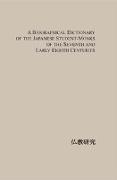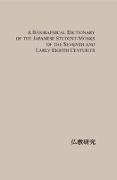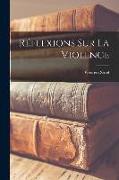- Start
- A Biographical Dictionary of the Japanese Student-Monks of the Seventh and Early Eighth Centuries
A Biographical Dictionary of the Japanese Student-Monks of the Seventh and Early Eighth Centuries
Angebote / Angebote:
The early Japanese student-monks, the monks who went to Sui and Tang China to study Buddhism, have attracted relatively little attention. This is mostly because the textual evidence concerning their voyages is scarce and their biographies can be reconstructed only very tentatively. Any attempt to outline a picture of their activities has to rely heavily on information preserved in the highly biased sources of official secular and Buddhist historiography.
This study gives an outline of the historical setting and examines the role of the student-monks in the transmission of Buddhism. In the biographical dictionary section, the author presents the existing information for 54 Japanese student-monks. These are all the monks known to have gone to China between 607, when the first embassy to the Sui departed, and 732, when Fusho and Yoei were sent on an adventurous journey to find competent Vinaya masters in China and invite them to Japan. Their search resulted in the coming of Ganjin, with whose arrival in Japan the transmission of the Nara schools of Buddhism came to an end.
THE HISTORICAL SETTING AND SOME REMARKS ON THE TRAVELS OF THE STUDENT-MONKS AND THEIR ROLE IN THE TRANSMISSION OF BUDDHISM
1 Historical setting
1.1 General political background
1.2 The first introduction of Buddhism to Japan
1.3 Shotoku Taishi and his role in the transmission of Buddhism
2 Japanese student-monks and the early embassies to China
2.1 The Japanese embassies to China
2.2 The student-monks of the embassies of 607 and 608
2.3 The influence of the early student-monks on the Taika Reforms
2.4 The student-monks of the embassy of 653
3 Buddhism in China and Japan during the early Tang
3.1 Japanese Buddhisms during Asuka and Nara
3.2 The Kusha and the Jojitsu school
3.3 The transmission of the Hosso school
3.4 The transmission of the Sanron school
4.5 The transmission of the Kegon school
3.6 The transmission of the Ritsu school
4 The role of Korea
4.1 Political and cultural relations between Paekche, Koguryo, Silla and Japan before 663
4.2 The relationship between Silla and Japan after 663 and its influence on the travels of the student-monks
BIOGRAPHICAL DICTIONARY
BIBLIOGRAPHY
Libri-Titel folgt in ca. 2 Arbeitstagen


